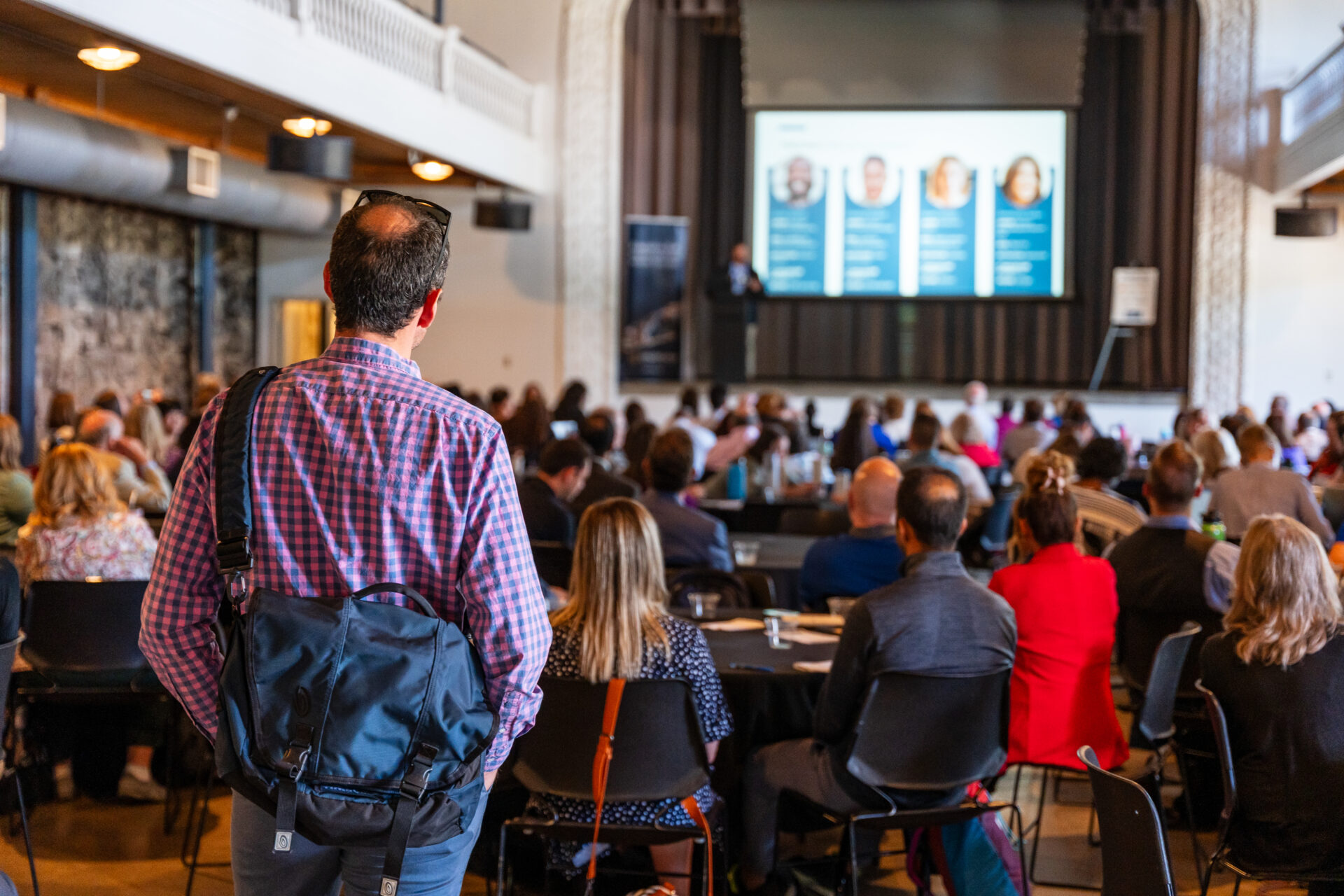
While higher education is becoming more attractive to adult learners, they need tailored supports to enroll and succeed.
That was the takeaway from the fourth Chancellor’s Summit on Adult Education, the state’s preeminent conference focused on serving students ages 25 and older. Hosted by the Colorado Community College System (CCCS) and sponsored by the Lumina Foundation’s REACH Collaborative, the event brought together more than 300 higher education and workforce development experts to Denver to discuss promising approaches in adult education.
Although enrolling adult learners has always been a focus for community colleges, the group has received renewed attention as the number of high school graduates declines in Colorado and nationally. In his opening remarks, Chancellor Joe Garcia reiterated CCCS’ commitment to serving nontraditional learners and challenged attendees to target the top barriers getting in their way: time and money.
“There are so many intelligent, hardworking people who demonstrate tremendous grit when pursuing higher education,” he said. “We need to adopt that same sense of courage as we reimagine education for adult learners.”
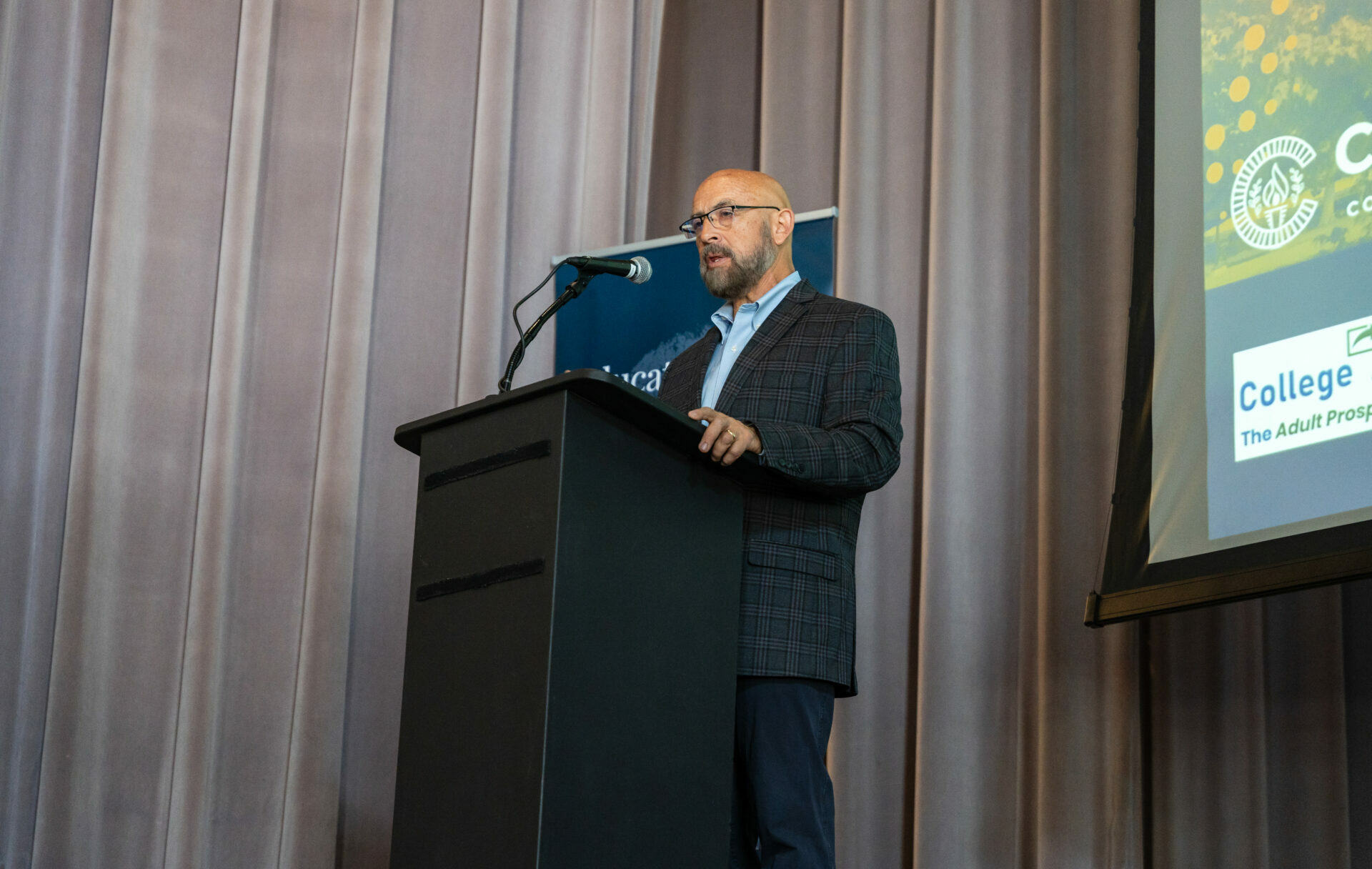
There are so many intelligent, hardworking people who demonstrate tremendous grit when pursuing higher education; we need to adopt that same sense of courage as we reimagine education for adult learners.
The Inclusivity ‘Imperative’
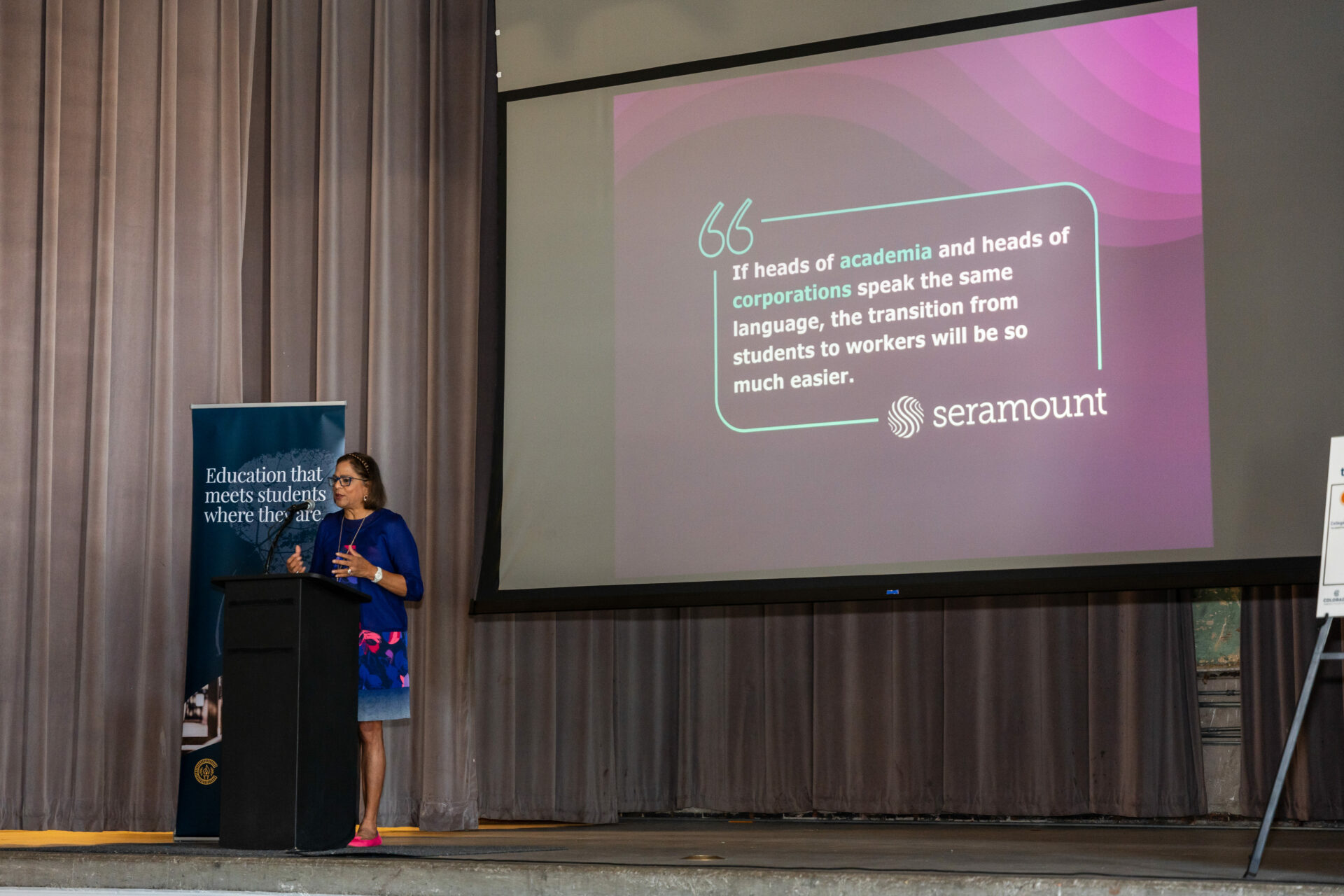
In addition to dozens of sessions from college administrators, staff, and faculty, the summit featured two keynote presentations from national thought leaders in diversity, equity, and inclusion and competency-based education.
Subha Barry, the president of consulting firm Seramount, opened the summit with insights on Generation Z. Compared to previous groups of workers, this population is reporting higher rates of stress and seeking jobs that align with their values and interests. These trends will require community colleges to bolster wraparound services like mental health and career coaching, Barry said.
“We’re moving to a world where inclusivity is not just a buzzword—it is an imperative,” she explained. “The student population is changing, and the people who are guiding them can shape their success in the workplace.”
Students are also looking for faster ways to obtain a credential, said Jason Levin, the executive director of WGU Labs. His presentation covered best practices in competency-based education (CBE), a model that emphasizes skill building rather than time spent in a classroom.
By grounding education in real-world scenarios, competency-based education can make courses more relevant and engaging to nontraditional students, he said.
“Many adult learners come with a lot of skills that they can plug into these courses and actually accelerate the time to a degree,” he said. “[CBE] meets students’ needs as individuals.”
Meeting Students Where They Are
Representatives from CCCS colleges also presented on a slate of pilot programs centering on nontraditional students. Most projects were backed by a $600,000 Lumina Foundation REACH grant that aims to increase credential rates for adult learners of color.
Both Colorado Northwestern Community College (CNCC) and Pueblo Community College (PCC) are working to strengthen relationships with tribal education departments, including the Southern Ute and Ute Mountain tribes. Indigenous students are among the least likely to graduates from community college, according to CCCS data.
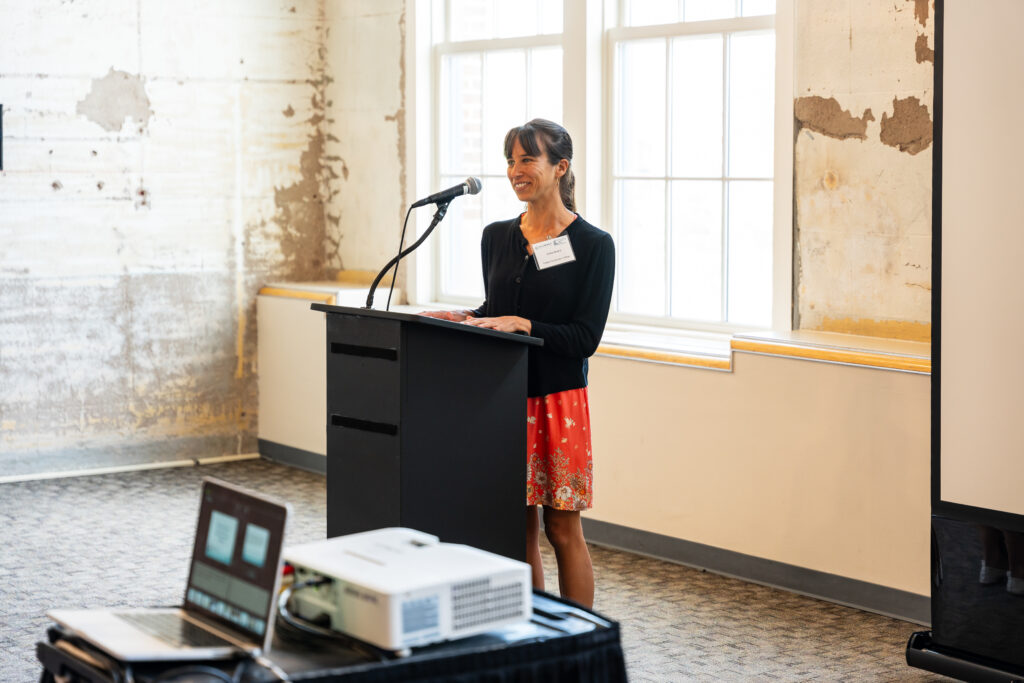
For CNCC, the collaboration has required consistent, deliberate conversations with Indigenous leaders and students. Keith Peterson, the Senior Vice President of Academic Affairs for CNCC, recounted the story of a Native learner who thrived once she received personal support from faculty and staff.
“That inspired us to break the model of what we’re doing and establish individual relationships to help Indigenous students learn in an environment that was not tailored for them,” he said. “When we took the ego out of it, and listened more than we talked, we had a great deal of success.”
PCC is leading similar work in the southwest corner of the state. Erika Avero was hired as the college’s first Native American success coach and hosts regular events to help families file the FAFSA and submit other college-related forms. She hopes bringing services directly to the community will yield higher enrollment among Indigenous learners and make the college more responsive to their needs.
“Being inclusive isn’t just about creating services on campus but about meeting people where they are,” she said.
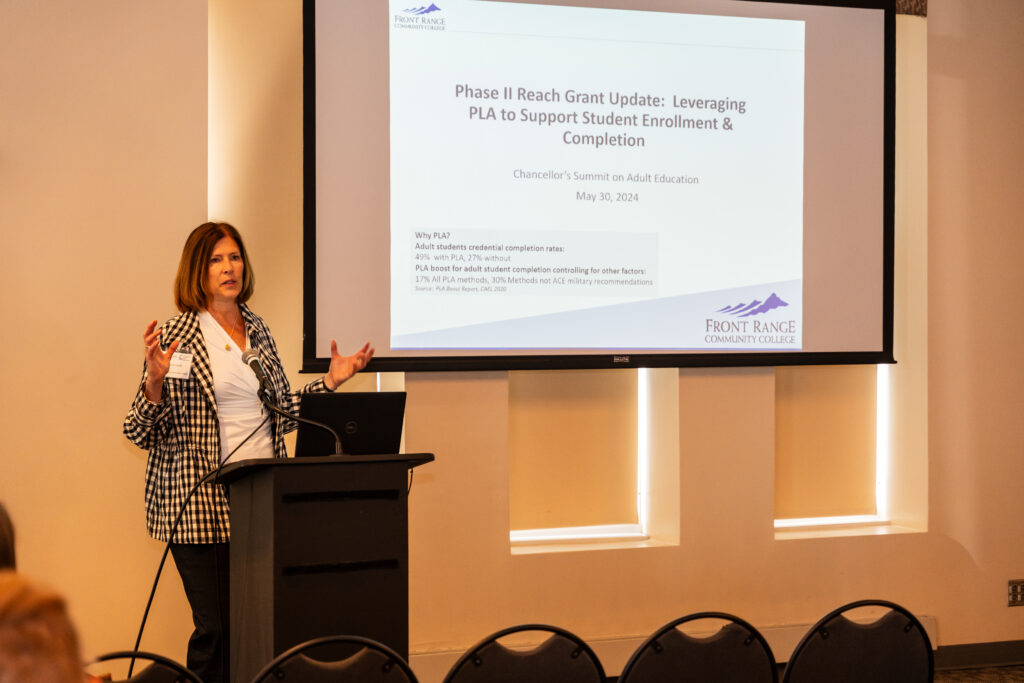
Recognizing Expertise
Other colleges are focusing on reforms inside the classroom.
Front Range Community College (FRCC) presented efforts to promote credit for prior learning (CPL), which awards college credit for skills and experiences mastered outside of a formal academic setting. Students earn CPL by presenting a professional portfolio or passing a college assessment.
By reducing the time and credits needed for a credential, CPL could be a game-changer for adult learners, FRCC administrators said. They leveraged Lumina Foundation funds to make CPL free for nearly 150 students and have doled out 42 credentials so far.
“These are people who’ve been working at a company for six, eight, ten years and now want to come back to school,” said Janel Highfill, who manages FRCC’s industry partnerships. “It might seem small, but it is very significant when we can recognize the knowledge and expertise that students are bringing to the table.”
Realizing Equitable Access
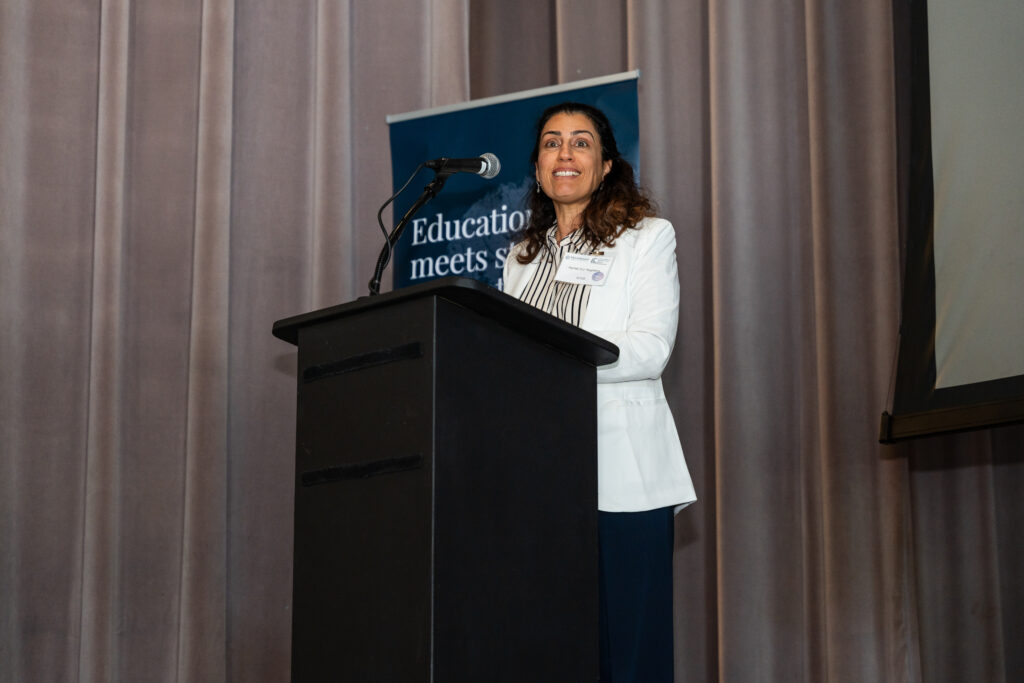
As the pilots wind down, CCCS will look to scale solutions across colleges to improve services and supports for nontraditional students.
Dr. Ayelet Zur-Nayberg, CCCC’s Director of Adult Student Success, was inspired to see attendees rallying behind this critical population.
“With adult enrollment declining, and less than 42% of adult learners of color earning credentials, we must act,” she said. “This Summit is all about empowering community colleges and other higher education institutions to upskill this population, meet workforce needs, and carry out the mission of equitable educational access.”


